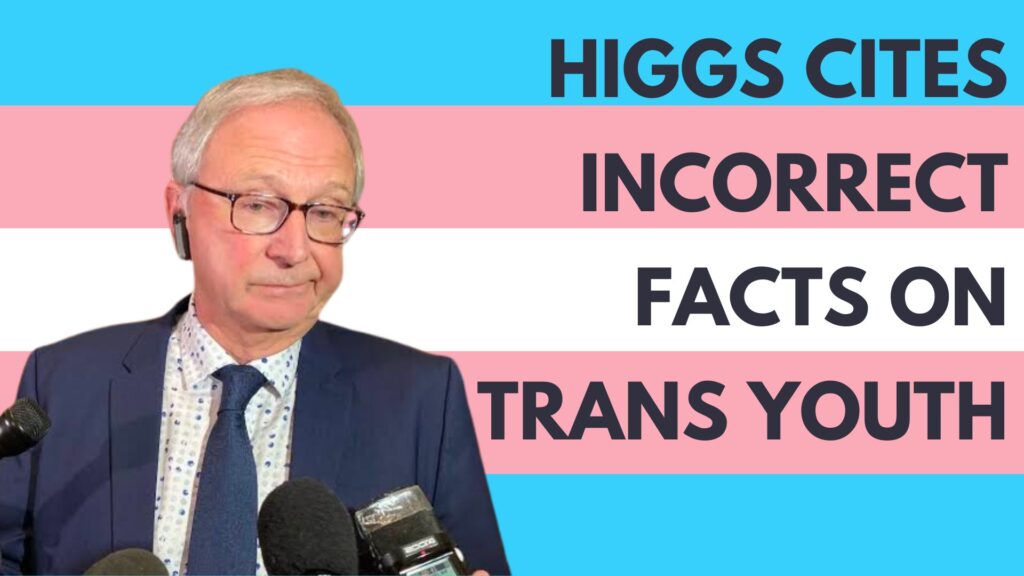In a recent year-end interview, Premier Blaine Higgs made statements regarding gender identity in schools, citing a study to support his government’s policy. However, the lead investigator of the study, Greta Bauer, has since contradicted Higgs, stating that he had misrepresented the research findings.
During the interview with The Canadian Press, Higgs claimed that approximately 60% of young children questioning their gender identity in Canada are “given automatic affirmation and put on some sort of hormone therapy” after their first medical appointment. Higgs later attributed this statistic to the two-year study called “Trans Youth CAN!” with Greta Bauer as the lead investigator.
Bauer, the chair of sexual health at the University of Minnesota Medical School, disputed Higgs’ interpretation of the study. She clarified that the research does not show that trans and non-binary youth are put on hormone therapy after a single medical visit. Instead, the study indicates that these patients had, on average, seen 2.7 different types of health-care providers and waited approximately nine months for a referral to a specialist in hormone treatment at a Canadian gender clinic.
“The premier’s statement about the study was, therefore, not accurate,” Bauer said, emphasizing the importance of political leaders accurately characterizing research when making policy arguments.
Despite the clarification from the study’s lead investigator, a spokeswoman for the premier’s office, Nicolle Carlin, mentioned that they do not expect Higgs to correct his statement. Carlin referred to a slide presentation summarizing the study’s findings, which noted that “62.4% of youth received a prescription at their first medical appointment at a gender clinic.” However, Bauer pointed out that this specific appointment is not the patients’ first mental health or medical appointment, but the one where they specifically discuss getting a prescription for hormone therapy.
Furthermore, the study’s summary also highlighted that the majority of youth see a family doctor or pediatrician before visiting a gender clinic and are often referred to the clinic by these healthcare providers. The summary also noted that 41% of patients had seen a psychologist before visiting one of the 10 clinics in Canada.
In response to questions about the source of his data, the premier’s office arranged for Erica Anderson, a U.S.-based clinical psychologist, to speak to journalists. Anderson also cited the same 2021 Canadian survey but did not mention the prior referrals and wait times that occurred before patients visited gender clinics.
Bauer criticized both Higgs and Anderson for not responsibly citing the study, stating that they are portraying a misleading picture of what happens in medical care for trans and non-binary youth. She emphasized that there are often significant delays for valid reasons, such as diagnosis, understanding one’s gender, ensuring parental support, or completing necessary medical work.
As Higgs stands firm on his government’s changes to the province’s policy on gender identity in schools, the controversy surrounding this issue is expected to play a prominent role in the Progressive Conservative party’s upcoming campaign for the election scheduled for October 21, 2024.




